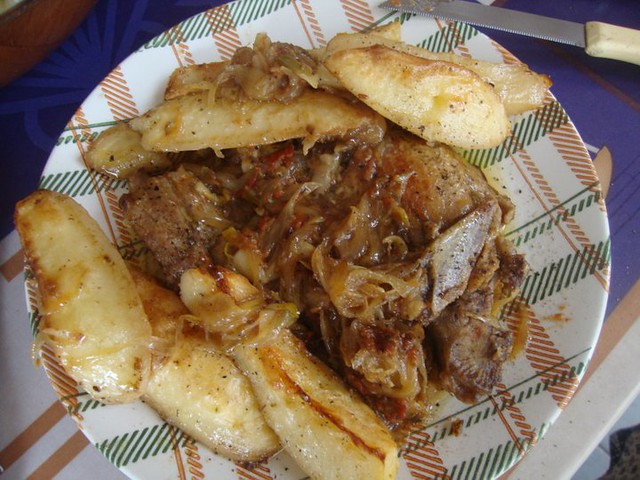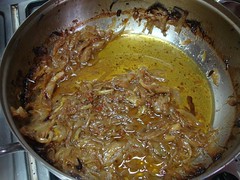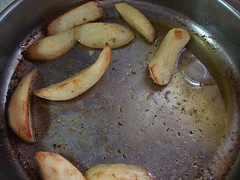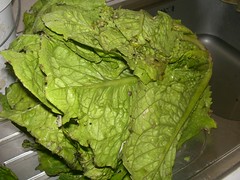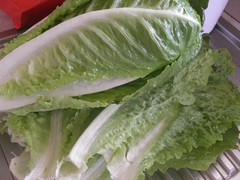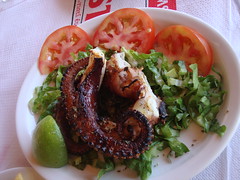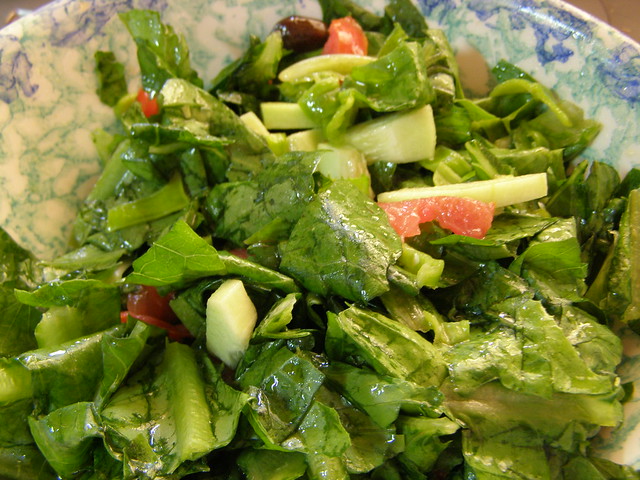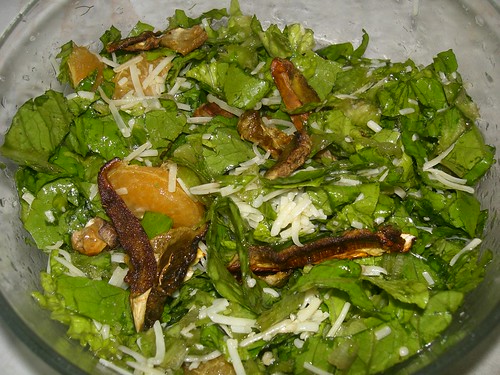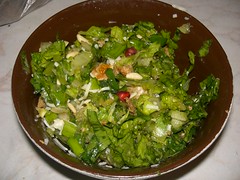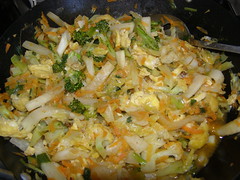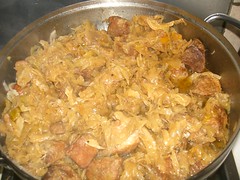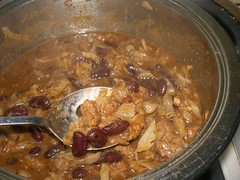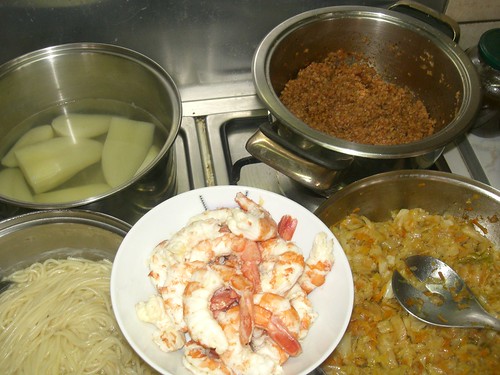When I first landed a job in Athens nearly two decades ago, the first thing I realised I had to do was set myself up to live independently. Up until that moment, I had been living at home or with relatives. I had saved up my New Zealand earnings to take a European holiday, but after starting work, I had the instinct to know that I shouldn't be using my savings any more. Leaving some money aside to tide me through to my first salary payment, I put whatever I had left into a bank account and pretended that it didn't exist. I would now have to get used to spending only from my new salary; if I needed more money than what I was earning, I could then safely say that living and working in Greece wasn't going to work out for me, and I would return home to New Zealand (which we all know never happened).
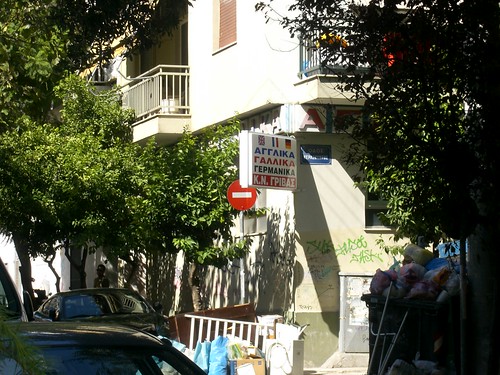
My first job: proofreading English-language coursebooks during the day and teaching English in the evenings. The owner of this school also ran a successful publishing house. This is the time in my life that stays in my mind and helped shape my personality after I left New Zealand. (The photo was taken on a Sunday, the rubbish reflects the densely populated suburb, and the fact that rubbish collection is often inadequate in Athens.)
Although the average Greek starting salary at the time was 75,000 drachmas (approximately 220 euro), my own one was 180,000 drachmas (approximately 530 euro). Private teaching has always paid well, although in recent times, the private teachers' wages haven't quite caught up with public sector jobs, which progressed mainly on borrowed money (teachers' salaries have now been reduced, just like all state employees' salaries). Given my qualifications, I was always given the older/advanced students, which meant a higher hourly wage. I figured that if I was making so much more money than the average person, I should have enough to rent an apartment, pay for my everyday living expenses and put some money aside.
I didn't count on the cost of renting an apartment in Athens, which has never been cheap. In those days, a small apartment of the type called 'garsoniera' (one room plus bathroom and kitchen) would have cost me at least 40,000-50,000; at the time, my sister was renting a 'thiari' (two rooms plus bathroom and kitchen) which was costing her 75,000. These prices were only found in areas considered lower-class neighbourhoods; higher-class areas demanded much higher prices. When I phoned about an apartment in Ilissia, for example, I was quoted 75,000 for a garsoniera. To rent an apartment in Greece, you had (and still have) to fork out at least half a basic salary to pay for rent (utility bills not included), and then live off the remaining salary - there clearly is no room for putting much money aside. On top of that, apartments in Greece generally come with
not a scrap of furniture, not even a curtain or a stove unit. This is why few people actually rented on their own in those days (and they still don't these days, either), preferring instead to stay on at home if this is possible, or find a flat-share situation if the situation allows.
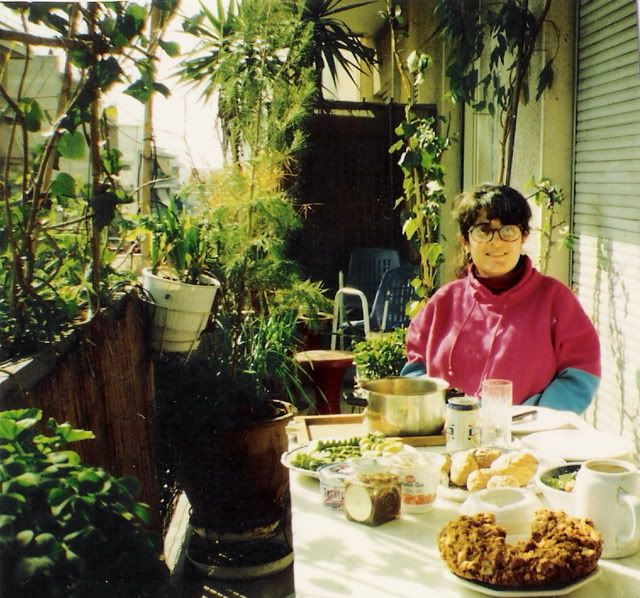
My first rented apartment: my landlord was a fanatic gardener. The green balcony deceives the viewer - the apartment was located in a large building, on a very central junction very close to the centre of Athens. All the buildings were so tall that you couldn't see any of the hills surrounding Athens, neither from the apartment nor from street level, unless you went to the top floor to hang out your washing.
I finally found a fully-furnished shared flat with a monthly rental fee that I felt I could afford: for 35,000 drachmas per month (not including electricity charges), I would live in a furnished garsoniera (complete with TV!), but my duties included sole responsibility for cleaning the landlord's kitchen and balconies (she had knocked down the wall dividing her apartment from my one), and putting up with her miniature pincher doberman shitting in my room every now and then. I still think of it as a small sacrifice to make for cheap rent and a cozy apartment.
Cos lettuce, straight from the garden, is not an appealing sight. You need to wash all the soil away, remove deocmposed leaves, and clean it really well. All your efforts will be rewarded with crips tasty salad. These days, a head of Cos lettuce is very cheap, at 39 euro-cents a piece. For a long time, this was the stardard lettuce available in Crete.
My uncles grew only Cos lettuce on their farm for many years, but now they are growing all sorts of leafy salads, like this curly red variety.
For work purposes, I also had to clear up my residence status in Greece. It was important that I did so very quickly, so that my Greek medical insurance (the infamous IKA) could kick in. I had come on a New Zealand passport and needed to either get a Greek passport, or a Greek identification card issued to me. To get a Greek passport, I needed an ID card, so I had to start off with the latter. This could only be issued in Hania, where my birth had been registered by my father. I needed to travel down to the island (these days, this kind of paperwork can be done at a distance with less hassle). During the coldest month in Greece (February), I travelled to Hania by ferry boat, sleeping in one of the third-class beds (which don't exist these days). If I didn't manage to snap one up, I'd have to sleep on the floor; my experienced ferry-travelling relatives told me to simply take a sheet to wrap myself up in, so as not to sleep on a dirty bed or soiled trodden floor, but I shouldn't worry about the cold, because the indoor areas of the ship were always air-conditioned.
All the expenses involved in my setting up an apartment and unscheduled travelling were adding up in my head. I had received an advance on my salary, but already, I was taking days off work, I had major expenses, and I didn't have any idea how much I would have to set aside for the electricity bill. It suddenly became more important to me than eating. I started to plan for how I would economise: I would not eat out, I would not go out for entertainment, I would not take taxis; I would allow myself an English-language newspaper once a week, I would have a coffee with friends only once a week, I would call my parents only once a fortnight and write letters to them every week.
While I was doing this, I was surrounded by people who did not choose to live so frugally. Eating out was
de rigeur most nights among some of my colleagues (all Greek girls from abroad), which would often be preceded by a visit to a cafe and/or followed by a bar club. They were living life to the full; it was unthinkable for them to spend Friday and Saturday nights at home watching television. They had no idea when the buses ran, they only used taxis. They rented more expensive apartments than I did, but they never spent much time in them. As I watched them living life as if there were no tomorrow (which always came with hangovers, headaches, lie-ins, and late starts in the day for them), I often wondered how they could afford to live like this. I knew what they were making, as we were all on similar salaries. They often did a lot of private language lessons, and were well paid, but such overpriced work (which often commands unreasonably high hourly charge rates that are set randomly at the discretion of the teacher) is temporary and insecure. Students (or their parents) run out of money, cancelling lessons without notice, and the teacher is left without work all of a sudden; in essence, their expensive lifestyle was unsustainable and it had an unknown expiry date that often came when it was least expected.

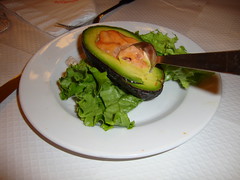
Right around the world, chefs use lettuce as a background decoration on the plate.
 These plates have been photographed from my travels in Thessaloniki, Paris, London and Crete.
These plates have been photographed from my travels in Thessaloniki, Paris, London and Crete.
Even with their higher-than-average salaries, they still managed to run out of money every now and then, and they'd ask me to lend them some. My upfront refusals made them think of me as 'not a good sport', a 'stingy person', 'a tight-arse'. "If
you needed any money, Maria," they said snivelling with a guilt-ridden complex, "you
know I'd lend you some". Yes, they would, if they ever had any remaining on them. I don't know where these people are now, or what they are doing, as I have lost contact with my Athenian ex-colleagues, but I see similar examples of them in the more recent arrivals of younger women in Hania (always women - there is a special reason for that which I might go into in another post). Most of them find that, eventually, they can't keep up with their expenses and blame it all on the low Greek salaries and high living expenses. The present global (not just the Greek) economic crisis could easily have been predicted by watching the spending habits of my colleagues; they were all Greeks who had been born and educated abroad, all living on temporary financial sources like private lessons, all spending without saving, living with a false sense of security within the instabililty of their present situation.
You may be wondering what 'lettuce salad' has to do with this post. Well, it just so happens that, in those early days of my avid economising, when I went to Crete to apply for a Greek identity card, I stayed with my grandmother in the village. When I left to return to my new apartment, my new job and the concrete jungle, my relatives gave me some food to take back with me: a four-litre plastic tube of olive oil, some eggs, a few spring onions and two
very large, very thick heads of Cos lettuce, still clinging onto the earth that they were rooted in, to keep them fresh. They would have also killed a chicken and given it to me, but I told them that I had nowhere to store it and was worried it would go off before I got it home (which is silly really, because I now know that nothing would have happened to it by the next day, especially in the middle of winter!).
Anne's salad: a friend taught me to mix vinegar and lemon juice together to make a very tangy salad dressing. Traditionally, Greek cooks use one or the other in their lettuce salads.
When I got back to the apartment in the early hours of the day, I put away my fresh produce and went to work that same morning. I knew that coffee would be served throughout the day at the office, so I never drank any coffee at home for the next few days until I received the remainder of my salary. I also knew that my extremely generous boss always bought everyone cheese pies and rolls for lunch, so there was no need to spend money on lunch, either (the office was located in an industrial area of Athens away from a central shopping district, on a kind of motorway). At the end of the day, I'd come home and cut some lettuce leaves off one of those thick heads I'd been given, and make myself an old-fashioned Greek lettuce salad, which I'd eat with a boiled egg and a slice of bread (I'd bought one loaf and made it last the whole week). At the weekend, I'd go and visit my sister (by bus, of course), and we'd pool our resources and cook up a cheap meal. On Sunday, I usually visited my very generous aunt, who was always happy to have her niece over for a meal with her family (my contribution to the meal was a bottle of drink). I did this for (as far as I remember) two weeks, until I received my first salary. If you ask me, only an Albanian would live like this in Greece in our days, because they've learnt to economise in similar ways. One day, when my children move away from home, I'd like to tell them this story, but I'll let them decide for themselves what they'll do when it's their first time living away from home.
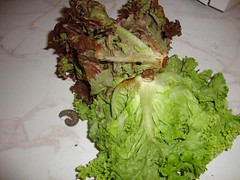
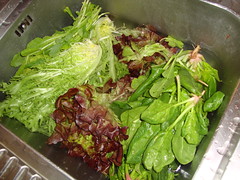
Nowadays, green leafy salads are much more exciting than the early days on Cos-only lettuce in Crete. These leafy heads cost TWICE the price of a head of Cos lettuce. Some of them do not keep as well as Cos, so they need to be bought when you actually want to use them.
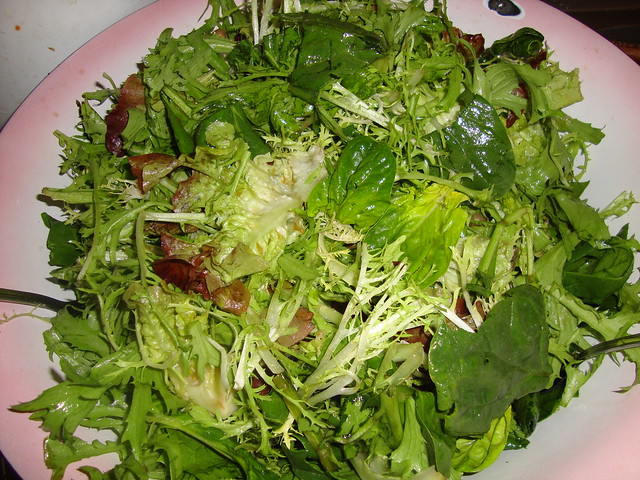
Maybe I was just born with the instinct to economise, but it had to start somewhere, which I think was from home, watching my parents working and saving. There was always good food on the table, and we never went without any of the basic necessities. We also had our luxuries: our parents gave us a handsome sum of money every Christmas and Easter to use as we wished, and we were taught to save our money through a bank account from when we were at high school. Most importantly, we were never in debt, we never took out bank loans, and we never asked others to lend us money. This is probably how I've managed to stay in Greece. Some people might like to remind me that I got a better start in life with the help I received from my parents to buy my own property, but that came many years after I had already been living in Greece. I'd already learnt how to work and live independently; parents often reward their children once they see them living within their means.
*** *** ***
For many years, I've been making the same kind of lettuce salad as in my early days, adding some grated carrot and chopped dill to the lettuce and spring onion. These days Greek lettuce salads are nowhere near as simple as they once were, because of the greater variety of lettuce now available in Crete. Cos lettuce was once the staple lettuce, but these days, it's seen as very old fashioned, especially when there is a wide range of leafy salad greens to choose from at most supermarkets, and nearly all of them locally grown, for those of us who are environmentally conscious. Even the simple olive oil and wine vinegar (or lemon juice) dressing has changed: balsamic vinegar has stormed the market, and a local product called houmeli (derived from the honeycomb by boiling it after the pure honey has been extracted from it) is often added to salad dressings for a more sweet-and-sour taste. Only the olive oil has remained the same...
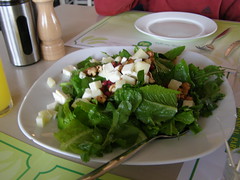

The following salads can be found these days in most good tavernas, although the old-fashioned one is what is commonly referred to as 'maroulosalata', while the more decadent one often goes under another name mentioning the meat/cheese added to it.
To make an old-fashioned taverna-style Greek lettuce salad,
you need:
a head of Cos lettuce
some dill
2-3 spring onions, with their green tops
1 carrot, grated (optional)
wine vinegar or lemon juice (I've used both before, and made a very tangy salad with in this way)
olive oil
salt
Chop (not tear) the lettuce into chunky slivers, the dill finely and the spring onions into thin chunks. Add the carrot if using. I also add some pickled peppers into the mixture, which have been soaking in wine vinegar. Sprinkle some salt over the salad, pour over the oil and vinegar/lemon juice, and toss well.
To make the new style of lettuce salad that is all the rage in Greek eateries these days,
you need:
some fancy lettuce (curly green, curly red, frisee endive, iceberg, etc)
some spinach leaves
some rocket (arugula)
honey or houmeli (a product made from boiling the honeycomb after the honey has been extracted)
balsamic vinegar
olive oil
pomegranate seeds
EITHER:
the vegetarian version: salty piquant-tasting cheese (blue vein, graviera or feta cheese are used in Crete)
OR:
the omnivore version: smoked pork strips (apaki or singlino is used in Crete; lardons would be a good substitute, as is boiled chicken)
OR:
the vegan version: avocado chunks
My first French salads (above) - I've learnt to mimic their vivid colours by buying salads in a variety of colours and textures. I also like to add protein to them, to make them into more complete meals.
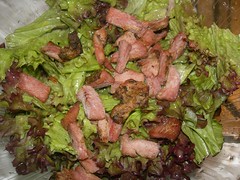
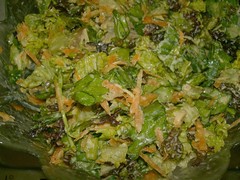
Wash and tear (not chop) all the leafy greens into a large bowl. Pour over the honey (or houmeli), balsamic vinegar and olive oil onto the leaves and toss well to mix. The amounts you pour in depend on your preference, but they are usually used in drizzled, just to coat all the leaves. Add a handful of pomegranate seeds into the bowl. Now add some shavings of graviera or chunks of blue (or feta) cheese, or the heated pork strips, or the avocado chunks. Serve the salad like this.
Lettuce salad has come a long way in my house since my early days in Greece.
Lettuce salad is very much a seasonal product. I would never buy lettuce in the summer, as it doesn't really suit the seasonal garden to grow this kind of vegetable in a dry Cretan summer. Unlike the old-fashioned maroulosalata, the cheese/pork one makes a complete meal when a slice of really good sourdough bread and a glass of really good white wine is served with it.
©All Rights Reserved/Organically cooked. No part of this blog may be reproduced and/or copied by any means without prior consent from Maria Verivaki.


 What could be difficult about cooking pork ribs? After looking it up on the internet, I found that this meat cut did prove to be a small challenge if you haven't cooked them before: dry-rub and glaze sauce are new concepts for me. Most recipes tell you to use your favorite dry-rub and your favorite BBQ sauce, both being things I am not familiar with, so I had to make them all myself.
What could be difficult about cooking pork ribs? After looking it up on the internet, I found that this meat cut did prove to be a small challenge if you haven't cooked them before: dry-rub and glaze sauce are new concepts for me. Most recipes tell you to use your favorite dry-rub and your favorite BBQ sauce, both being things I am not familiar with, so I had to make them all myself. 

 What could be difficult about cooking pork ribs? After looking it up on the internet, I found that this meat cut did prove to be a small challenge if you haven't cooked them before: dry-rub and glaze sauce are new concepts for me. Most recipes tell you to use your favorite dry-rub and your favorite BBQ sauce, both being things I am not familiar with, so I had to make them all myself.
What could be difficult about cooking pork ribs? After looking it up on the internet, I found that this meat cut did prove to be a small challenge if you haven't cooked them before: dry-rub and glaze sauce are new concepts for me. Most recipes tell you to use your favorite dry-rub and your favorite BBQ sauce, both being things I am not familiar with, so I had to make them all myself. 












